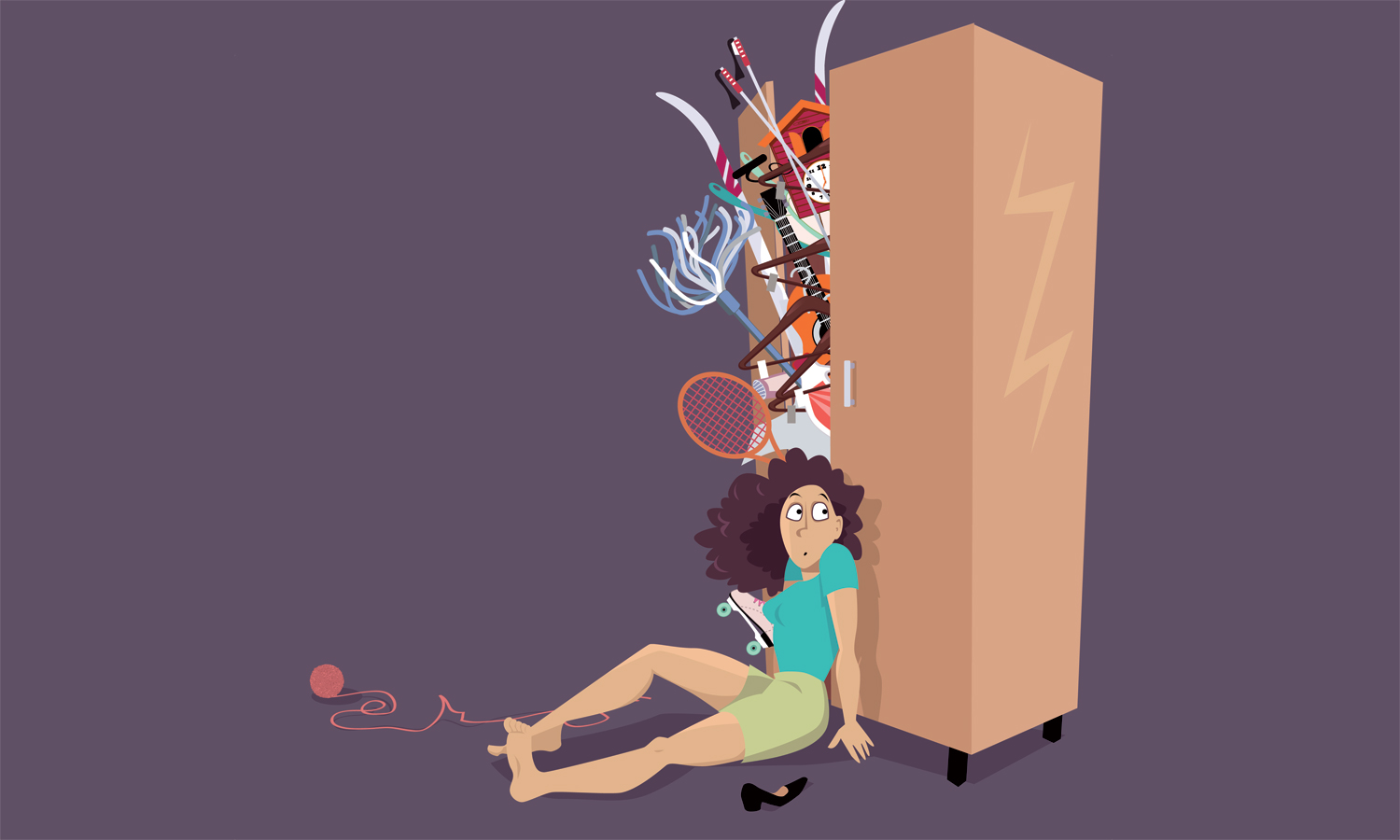

Compulsive hoarding of things and refusal to dispose of unnecessary possessed items in the hope of their use in the future is a psychological disorder many people suffer from.
Some people are habitual hoarders, they collect things and refuse to dispose them of, regardless of them being damaged or unnecessary. They generally create huge stocks of things like newspapers, magazines, clothes, or even damaged toys.
Such people suffer from the strong value of those trash items.
Those who suffer from such disorder, find it very difficult to dispose of or leave their belongings, as things pile up and cause chaos in the living spaces.
Psychologists call it an obsession to hoard things that leads up to the level of pathological disorder that means the excessive accumulation of things in a home with serious mental difficulty to clear them.
Dr Heba Obeidat, who is a psychologist, explains the traits of such people and said, “Such people have strong urge to save things. They feel severe distress when forced to get rid of those unnecessary things. People may not have enough space to hold all the accumulated things, therefore, the living areas become chaotic. It ultimately has a further impact on the such people’s mental status.”
Although the main cause of compulsive hoarding is unknown, some factors may cause this disorder. The most important, according to Dr Heba, “is genetic, as the incidences of compulsive hoarding increases if other family members suffer from the same disorder.”
“It has a psychological reason, such as feeling safe when stocking such items or feeling secured that he may need them later,” Dr Heba mentioned and said isolated personalities are the most vulnerable to this disorder.
This disorder causes disruption in professional and social life. “To treat it, the correct psychological intervention is the appropriate solution, as leaving it untreated can cause other problems such as anxiety or depression or may increase social isolation,” Dr Heba added.
She explained that treatment may be pharmacological, as the patient depends on a course of anti-depressant drugs, which contribute to improving the general mood.
Besides, cognitive behavioural therapy, which is a psychological treatment that depends on listening and talking sessions, also helps. They also include some exercises that help a person get rid of that disease.
To treat the disorder, a doctor may visit the patient’s home to help him get rid of the hoarded items gradually, organise his affairs, and set a list of priorities as needed.
Yet, the psychologist asserted that family support is very important to get rid of this disorder, like any other disease, this disorder also needs family.
Oman Observer is now on the WhatsApp channel. Click here



